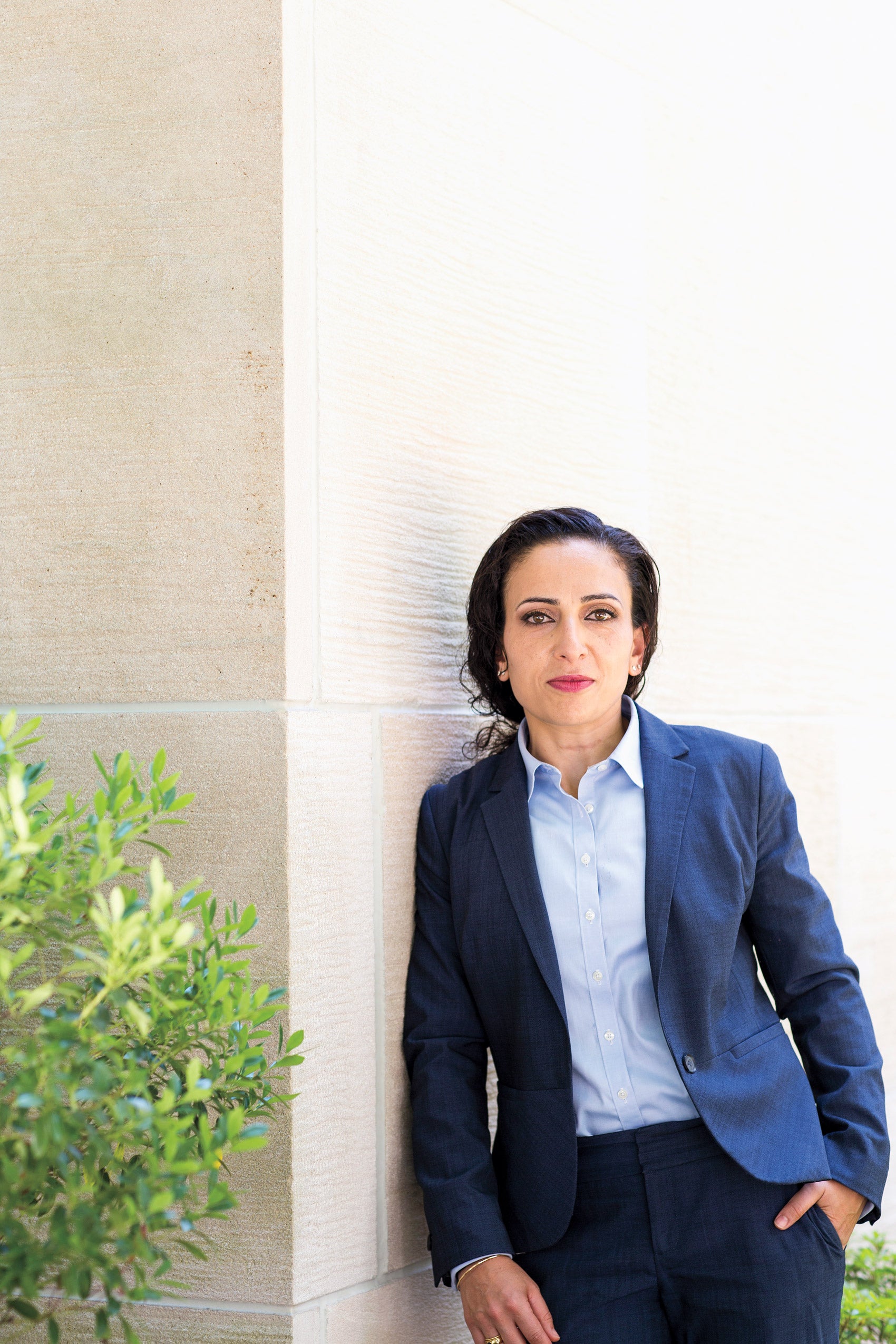On Feb. 24, Professor of Practice Naz Modirzadeh ’02, founding director of the Harvard Law School Program on International Law and Armed Conflict (HLS PILAC), briefed a United Nations Security Council Arria-formula meeting convened by the Permanent Mission of Mexico.
The event was titled “Upholding the collective security systems of the UN Charter: the use of force in international law, non-state actors and legitimate self-defense.” With the meeting, Mexico sought to analyze the legal scope of Article 51 of the UN Charter, which concerns the right of self-defense, and to discuss invocations of that right against non-state actors in counterterrorism contexts.
Following an introduction by the chair, Ambassador Juan Ramón de la Fuente of Mexico, Modirzadeh brought attention to the implications of state silence in this area. Her “core message” was that, “despite the significant stakes in this debate for all members of the international community, the law governing self-defense is being shaped and applied in counterterrorism contexts without the active and routine participation of the vast majority of states.” For Modirzadeh, this situation is unsatisfactory, and she urged all states to address it as a matter of priority to effectively maintain international peace and security.
Under Article 51 of the UN Charter, member states are required to report their self-defense measures to the Security Council immediately. In recent years, there has been an increase in reports claiming the right of self-defense against non-state actors, such as the Islamic State of Iraq and Syria, in foreign counterterrorism contexts without the territorial state’s consent or the Security Council’s authorization. Modirzadeh discussed these developments and the potential legal effects if other states or the Security Council do not respond to these reports.
Modirzadeh’s briefing was based partly on a 2019 HLS PILAC report titled “Quantum of Silence: Inaction and Jus ad Bellum,” which she co-authored with HLS PILAC Faculty Director Gabriella Blum ’01 S.J.D. ’03, Rita E. Hauser Professor of Human Rights and Humanitarian Law, and Dustin A. Lewis, the program’s research director.
In her remarks, Modirzadeh also drew on the catalogue of more than 400 apparent Article 51 self-defense communications submitted to the Security Council from 1945 through 2018. The catalogue was edited by Lewis with contributions from fourteen HLS PILAC research assistants — Lindsay Bailey, Emma Broches, Laura Clark, Sonia Chakrabarty, Thejasa Jayachandran, Daniel Levine-Spound, Sarah Libowsky, Samantha Lint, Yang Liu, Carolina Silva-Portero, Shira Shamir, William Ossoff, Tamsin Parzen, and Shanelle Van — and with research support from Jennifer Allison, J. Bridget Reischer, and Caroline Walters of the HLS Library.
Prior to the report’s publication, HLS PILAC analysts had explored the legal and policy issues over several years. From 2017 to 2019, Modirzadeh gave briefings on provisional research to numerous states’ legal advisers as part of an informal series in New York hosted in collaboration with the Permanent Missions to the UN of Belgium, Liechtenstein, Mexico, Norway, and Switzerland. In the 2019 HLS PILAC report, after arguing for caution in according state silence legal significance, Modirzadeh, Blum, and Lewis urged states to consider more systematically the contexts in which they speak out and those in which they remain silent.
Forty-one UN Members spoke about these issues at the Feb. 24 meeting. States — including China, Iran, Mexico, Norway, Qatar, Russia, and the United States — discussed whether the right of self-defense can be legitimately invoked against non-state actors and whether a lack of a response may constitute acquiescence to claims contained in self-defense reports.
Modirzadeh, whose scholarship and research focus on intersections between the fields of international humanitarian law, international human rights law, and legal frameworks governing terrorism, as well as Islamic law pertaining to protection of civilians, has carried out legal research and policy work concerning several armed conflict situations. She frequently contributes to academic and professional initiatives in the areas of humanitarian action, counterterrorism, and the laws of war.
